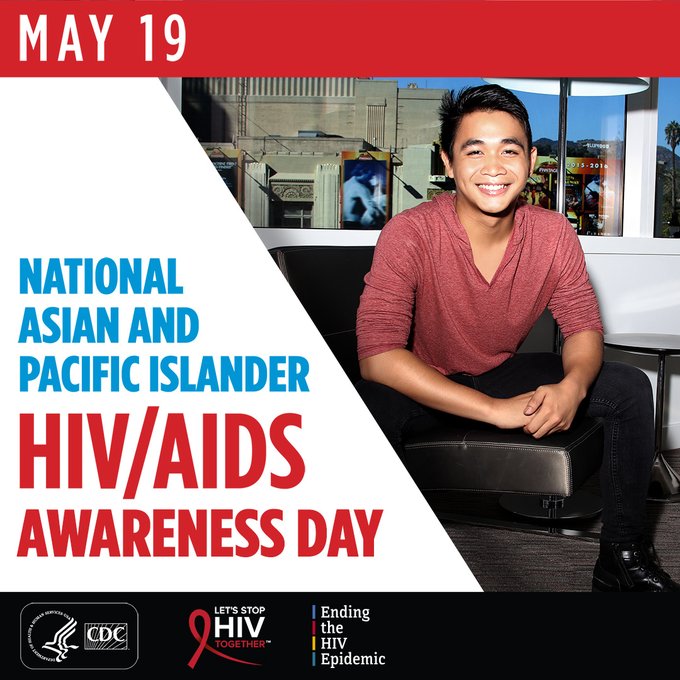May 19, 2023 – Today, CHIPTS honors National Asian & Pacific Islander HIV/AIDS Awareness Day (#APIMay19), a day dedicated to raising awareness about the impact of HIV and exploring strategies to combat HIV in Asian & Pacific Islander communities. Last year, CHIPTS Combination Prevention Core Scientist Dr. Wei-Ti Chen shared an illuminating reflection highlighting challenges faced by many Asian Americans and Pacific Americans living with HIV, and interventions to help address those challenges. This year, we are excited to feature a reflection by CHIPTS Methods Core Associate Director Dr. Chunqing Lin on her global efforts to identify and address the unique needs of women living with HIV in Vietnam. View Dr. Lin’s reflection below.
 In Vietnam, there are 223,000 individuals living with HIV/AIDS, with women making up 31% of this population. HIV/AIDS and its related risky behaviors have long been portrayed as social evils in Vietnam. Similar to other countries, women living with HIV (WLHA) in Vietnam are facing substantial stigma and discrimination, which discourages them from seeking not only general medical services and HIV treatment but also vital reproductive care and prevention of mother-to-child transmission (PMTCT) of HIV. Furthermore, WLHA in Vietnam are facing unique challenges stemming from the long-standing Confucian principles in the Vietnamese culture, where Vietnamese women are expected to obey female ethical criteria and sacrifice their own needs for the benefit of their children, husbands, and families. WLHA in Vietnam are more vulnerable to domestic violence and family rejection. Additionally, Vietnamese women often internalize such shame and form a sense of inferiority and a loss of self-worth, and they are in urgent need of support. However, the Vietnamese government’s responses to HIV have mainly focused on other key populations, such as people who use drugs and men who have sex with men, while the needs of WLHA remain largely unaddressed.
In Vietnam, there are 223,000 individuals living with HIV/AIDS, with women making up 31% of this population. HIV/AIDS and its related risky behaviors have long been portrayed as social evils in Vietnam. Similar to other countries, women living with HIV (WLHA) in Vietnam are facing substantial stigma and discrimination, which discourages them from seeking not only general medical services and HIV treatment but also vital reproductive care and prevention of mother-to-child transmission (PMTCT) of HIV. Furthermore, WLHA in Vietnam are facing unique challenges stemming from the long-standing Confucian principles in the Vietnamese culture, where Vietnamese women are expected to obey female ethical criteria and sacrifice their own needs for the benefit of their children, husbands, and families. WLHA in Vietnam are more vulnerable to domestic violence and family rejection. Additionally, Vietnamese women often internalize such shame and form a sense of inferiority and a loss of self-worth, and they are in urgent need of support. However, the Vietnamese government’s responses to HIV have mainly focused on other key populations, such as people who use drugs and men who have sex with men, while the needs of WLHA remain largely unaddressed.
I recently collaborated with Hanoi Medical University (HMU) to study the unique challenges and needs of WLHA in Vietnam. Our study team conducted formative studies with WLHA to describe the social/family role of being a female with HIV in the context of Vietnamese culture and social context. Through these studies, our team identified the gender-based needs and challenges experienced by WLHA in Vietnam.
In the Vietnamese culture, women are often expected to shoulder a variety of responsibilities within the family. They are commonly responsible for taking care of both their own family and their husband’s family, managing household chores, and taking care of their children’s education and well-being. At the same time, women may also engage in work or run a business to share the financial burden of the family. Despite the heightened responsibilities, WLHA are more vulnerable to stigma due to the deeply rooted gender inequality in society. It is commonly believed that extramarital sex and substance use behaviors are more accepted in men than in women. Women with HIV are assumed to have been involved in sex work or promiscuous sexual relationships, which is considered to be lacking female virtue. Although women who contracted HIV from their husbands are regarded relatively sympathetically, they still face stigma due to people’s fear of being infected. Regardless of how they contracted HIV, WLHA frequently encounter the belief that their health is compromised, and they are unable to perform regular work duties. Unfortunately, many WLHA internalize this belief, which undermines their self-efficacy in applying for jobs and achieving financial independence.
Stigma significantly impacts WLHA’s general healthcare and, more specifically, every step of their reproductive decision-making and service utilization. In-depth interviews revealed that many WLHA desired to have more children to fulfill their partner’s wishes or strengthen their family bond. However, despite the availability of PMTCT, the slight risk of transmitting HIV to their child was reported to be a major concern for some women, leading them to decide against having children. Additionally, some women faced discouragement from doctors or family members against taking risks. WLHA’s concerns about health, financial constraints, unstable family relationships, and future uncertainties also deterred them from deciding to have children. Pregnant WLHA reported feeling desperate and lacking information and support during pregnancy and delivery, with stigma and discrimination from healthcare providers being common. Some WLHA were denied prenatal care or referred to other facilities upon disclosing their HIV status, while others had to terminate their pregnancies due to stigma, fear of transmission, and lack of support. Regarding postpartum care, although PMTCT of HIV services have become more readily available in recent years, WLHA still experienced delayed antiretroviral prescriptions due to breakdowns in communication between providers. A significant concern for these mothers is the inability to breastfeed, which can lead to feelings of disconnection from their babies and unintentional disclosure of their HIV status. Parenting poses substantial challenges for WLHA, starting with the fear of not being present for their children due to disease progression and uncertain health conditions. They worried about their children’s well-being after their passing and were concerned about their inability to provide adequate care or support because of their HIV status and financial difficulties. Fortunately, some WLHA received family support in various aspects of child-rearing, including financial assistance, emotional support, and help with daily childcare. This support helped alleviate some of the stress and burden faced by WLHA. At the same time, other WLHA experienced stigma and discrimination from family members, who distanced themselves from the WLHA and their babies due to fear of infection or societal judgment. In some cases, babies were taken away from WLHA to prevent HIV infection. Lastly, children of WLHA faced social isolation and discrimination at school due to their mother’s HIV status, leading to emotional distress and negatively impacting WLHA’s parenting abilities.
In response to the identified health challenges and unique needs of WLHA, the study team collaborated with local WLHA, service providers, and researchers to develop an online-offline hybrid approach to empower WLHA in Vietnam. This intervention incorporates evidence-based strategies to reduce the negative impact of stigma and promote service-seeking. To allow flexibility, the intervention is designed to be conducted in three formats: in-person, Zoom, and Zalo (the most popular social networking platform in Vietnam). In-person sessions focus on reducing internalized stigma, learning active coping strategies to promote mental health, practicing effective communication strategies in service-seeking and disclosure, and improving family relationships while encouraging family and peer support. Zoom sessions promote health service-seeking, holistic health, and general well-being. Zalo group discussions serve as check-ins to evaluate participants’ physical and mental well-being, review content from in-person and Zoom sessions, share information and resources, and provide relaxation and games. The intervention is currently being tested among 90 WLHA in Hanoi. We will assess the feasibility of the online-offline strategy, the acceptability of in-person/Zoom/Zalo formats, the sustainability of discussion and mutual support without investigator influence, and the preliminary outcomes of the intervention on WLHA’s internalized stigma, mental health, social and family support, health/social service seeking, and HIV treatment adherence.

